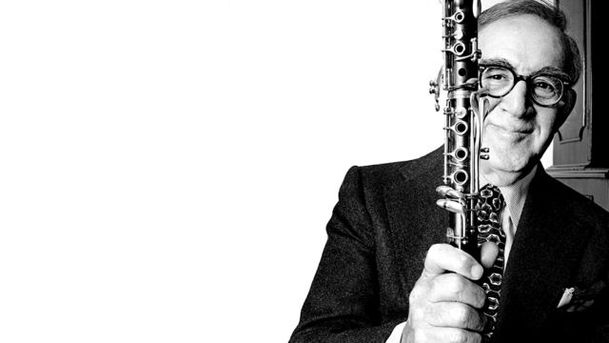Benny Goodman: King of Swing - Episode 4

Curtis Stigers remembers the clarinettist and bandleader Benny Goodman in his centenary year. In the fourth episode, following his success at Carnegie Hall, trouble is brewing between Benny and his star drummer Gene Krupa and within weeks, he is gone. Krupa was a hard act to follow and his departure ushers in a period of change. Johnny Mercer enters the picture as lyricist on the big Goodman hit, And Then Angels Sing, and becomes a regular on Goodman's Camel Caravan radio show. Star trumpeter Harry James departs to start his own band while his wife, Louise Tobin, becomes Benny's new girl singer. In a new interview, Louise remembers her days with Benny and the band, which included a travelling "first". The brilliant electric guitar pioneer Charlie Christian also joins the band after a rather unusual audition. In 1940, Benny is suffering increasingly from back trouble and is forced to disband temporarily to undergo surgery. His great clarinet rival, Artie Shaw takes on a number of Benny's musicians and contributes some provocative thoughts on Goodman's approach to the clarinet and music. But Goodman reforms his band with a new recording contract and a new style, orchestrated by the young arranger Eddie Sauter. Saxophonist Jerry Jerome remembers: "I got Eddie to audition, so we started rehearsing and it sounded so bad. When you play a Sauter arrangement for the first time, you're playing clusters, you're playing harmony notes that are in conflict literally until it's rehearsed and blended. And the guys were furious with me for recommending him 'cos it sounded so bad". After much rehearsal, it started to sound good and then terrific, as we hear in one of Sauter's great arrangements Benny Rides Again.